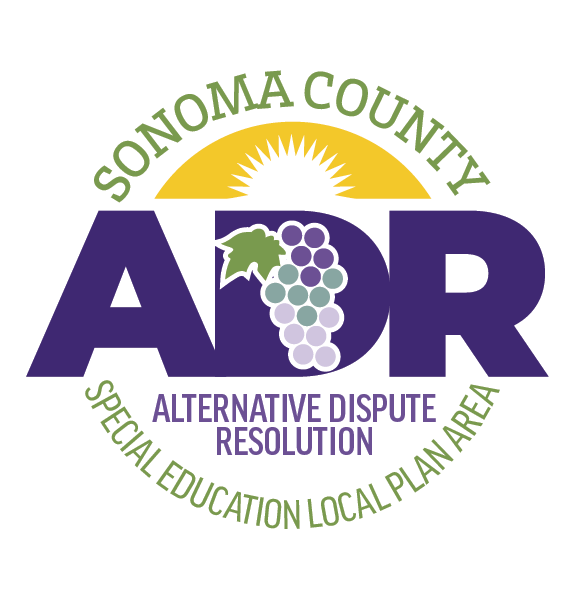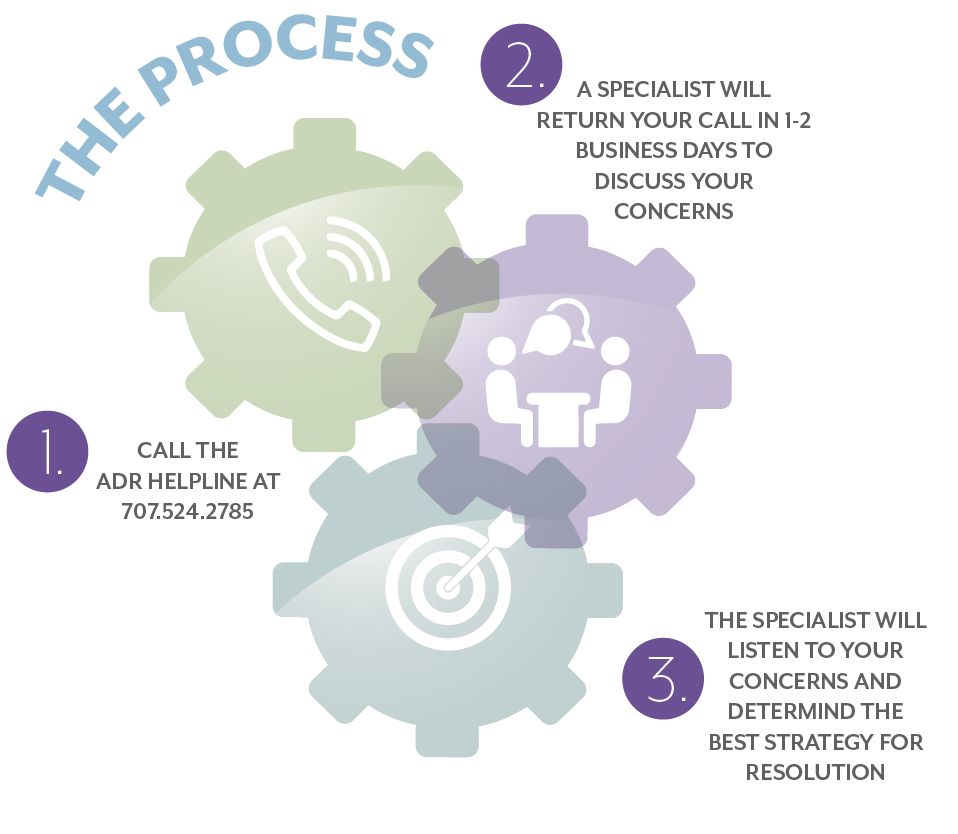


The Sonoma County SELPA and Charter SELPA will facilitate an Alternative Dispute Resolution process to help resolve conflicts between schools and families with children in special education. Major components of the program include:
Phone mediation is the first level of response that the ADR team employs. Following the identification of the parties’ issues and interests, the ADR case-carrier will coordinate communication between the parties and facilitate resolution over the telephone.
Parents or school staff may request that an ADR-trained SELPA program specialist facilitate an IEP meeting if the meeting
is expected to be difficult. The facilitator uses specific techniques designed to assist the parties in completing the IEP while maintaining good relationships.
The Independent Child Advocate is a neutral ombudsperson trained in ADR. The Advocate is assigned when a parent or guardian needs additional support outside of the IEP process or to difficult cases where relationships are at risk and communication is limited. The Advocate is knowledgeable about special education law and programs.
Both Local Mediation and Resolution Sessions use an effective problem-solving method that allows parties in dispute to reach a mutually agreeable solution. It is a safe, low-pressure process guided by a trained mediator. Local Mediation or participation in Resolution Sessions does not prevent either party from pursuing state-level mediation if the parties are not satisfied with the result.

95 Percent of ADR Cases are Resolved Without Going to Due Process
